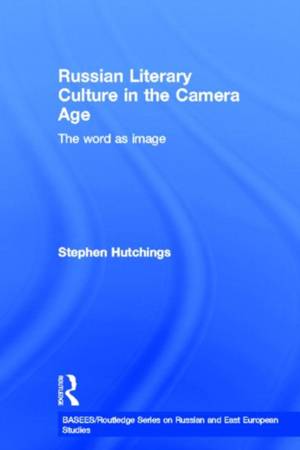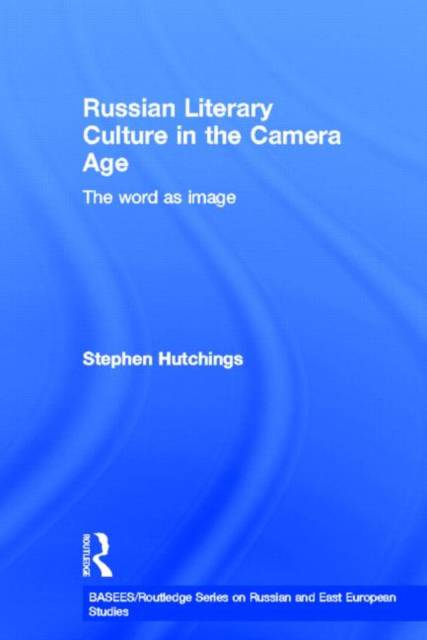
Bedankt voor het vertrouwen het afgelopen jaar! Om jou te bedanken bieden we GRATIS verzending (in België) aan op alles gedurende de hele maand januari.
- Afhalen na 1 uur in een winkel met voorraad
- In januari gratis thuislevering in België
- Ruim aanbod met 7 miljoen producten
Bedankt voor het vertrouwen het afgelopen jaar! Om jou te bedanken bieden we GRATIS verzending (in België) aan op alles gedurende de hele maand januari.
- Afhalen na 1 uur in een winkel met voorraad
- In januari gratis thuislevering in België
- Ruim aanbod met 7 miljoen producten
Zoeken
€ 290,45
+ 580 punten
Uitvoering
Omschrijving
This book explores how one of the world's most literary-oriented societies entered the modern visual era, beginning with the advent of photography in the nineteenth century, focusing then on literature's role in helping to shape cinema as a tool of official totalitarian culture during the Soviet period, and concluding with an examination of post-Soviet Russia's encounter with global television. As well as pioneering the exploration of this important new area in Slavic Studies, the book illuminates aspects of cultural theory by investigating how the Russian case affects general notions of literature's fate within post-literate culture, the ramifications of communism's fall for media globalization, and the applicability of text/image models to problems of intercultural change.
Specificaties
Betrokkenen
- Auteur(s):
- Uitgeverij:
Inhoud
- Aantal bladzijden:
- 270
- Taal:
- Engels
- Reeks:
Eigenschappen
- Productcode (EAN):
- 9780415306683
- Verschijningsdatum:
- 9/09/2004
- Uitvoering:
- Hardcover
- Formaat:
- Genaaid
- Afmetingen:
- 158 mm x 239 mm
- Gewicht:
- 548 g

Alleen bij Standaard Boekhandel
+ 580 punten op je klantenkaart van Standaard Boekhandel
Beoordelingen
We publiceren alleen reviews die voldoen aan de voorwaarden voor reviews. Bekijk onze voorwaarden voor reviews.









